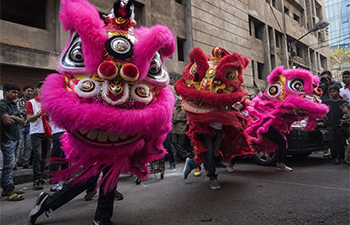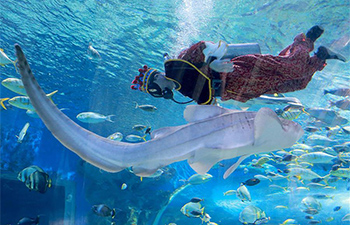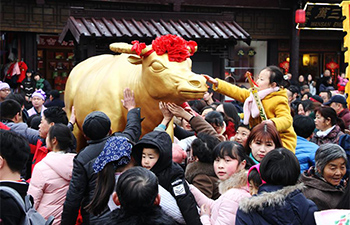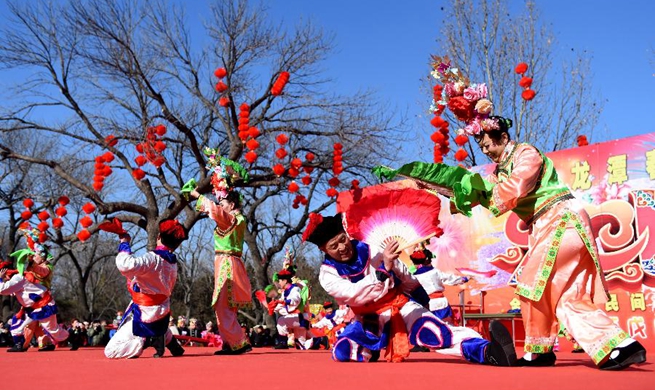LONDON, Feb. 16 (Xinhua) -- Chester Zoo's seven playful African painted dog puppies, who were born two months ago to mom K'mana, were given African-inspired names on Friday.
The four females and three males were finally named by keepers after they established the gender mix of the litter, born just two months ago as the first of their kind to be bred at the zoo.
The trio of males have been named Bakuru, Kendi and Hasani, while their quartet of sisters have been named Mosi, Nuru, Eyasi and Bahati.
Their arrivals mark a significant boost to an international breeding program which is working to try and boost numbers of the endangered species, as conservationists fear as few as 1,500 breeding dogs now remain across Africa.
African painted dogs take their name from their irregular mottled coat, which features patches of yellow, black, brown and white fur. No two dogs have exactly the same markings, which is useful for trying to identify different pack members in the wild and just as helpful to the zoo's keepers who chose the names.
Dave Hall, team manager of carnivores at the zoo, said: "It's fascinating to watch the pups play and the family dynamic of the pack develop. The adult dogs are very protective of the youngsters and dad, Ville, is extremely attentive to them. From the start, he took food into the den for K'mana when she was suckling the pups and he's now doing his bit to discipline them and police how much they're all eating."
"As they grow in size, they grow in confidence. The family dynamic is different every day and it's great to see some strong bonds forming between individuals."
The African painted dog is one of the world's most endangered carnivores and is facing a real struggle for survival. They are listed as endangered by the International Union for the Conservation of Nature (IUCN).
Key factors in their demise are conflict with humans, where they are hunted and poisoned for killing livestock, and exposure to infectious diseases transferred from domestic dogs.

















